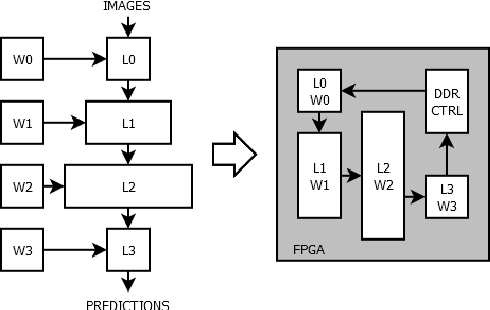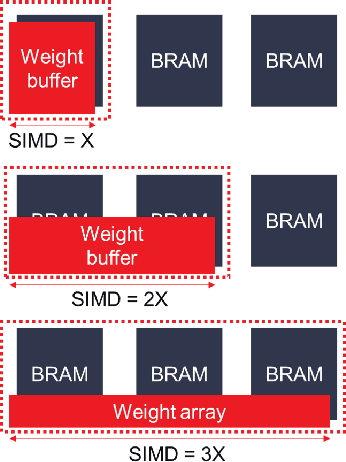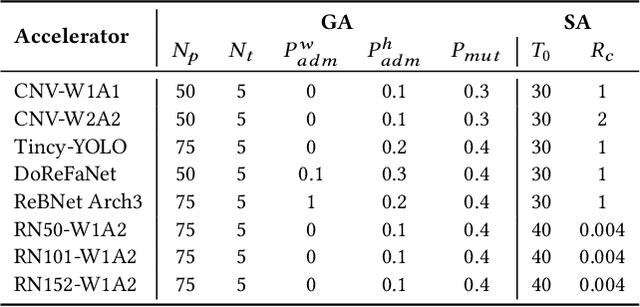Lucian Petrica
ACCL+: an FPGA-Based Collective Engine for Distributed Applications
Dec 18, 2023Abstract:FPGAs are increasingly prevalent in cloud deployments, serving as Smart NICs or network-attached accelerators. Despite their potential, developing distributed FPGA-accelerated applications remains cumbersome due to the lack of appropriate infrastructure and communication abstractions. To facilitate the development of distributed applications with FPGAs, in this paper we propose ACCL+, an open-source versatile FPGA-based collective communication library. Portable across different platforms and supporting UDP, TCP, as well as RDMA, ACCL+ empowers FPGA applications to initiate direct FPGA-to-FPGA collective communication. Additionally, it can serve as a collective offload engine for CPU applications, freeing the CPU from networking tasks. It is user-extensible, allowing new collectives to be implemented and deployed without having to re-synthesize the FPGA circuit. We evaluated ACCL+ on an FPGA cluster with 100 Gb/s networking, comparing its performance against software MPI over RDMA. The results demonstrate ACCL+'s significant advantages for FPGA-based distributed applications and highly competitive performance for CPU applications. We showcase ACCL+'s dual role with two use cases: seamlessly integrating as a collective offload engine to distribute CPU-based vector-matrix multiplication, and serving as a crucial and efficient component in designing fully FPGA-based distributed deep-learning recommendation inference.
Evolutionary Bin Packing for Memory-Efficient Dataflow Inference Acceleration on FPGA
Mar 24, 2020



Abstract:Convolutional neural network (CNN) dataflow inference accelerators implemented in Field Programmable Gate Arrays (FPGAs) have demonstrated increased energy efficiency and lower latency compared to CNN execution on CPUs or GPUs. However, the complex shapes of CNN parameter memories do not typically map well to FPGA on-chip memories (OCM), which results in poor OCM utilization and ultimately limits the size and types of CNNs which can be effectively accelerated on FPGAs. In this work, we present a design methodology that improves the mapping efficiency of CNN parameters to FPGA OCM. We frame the mapping as a bin packing problem and determine that traditional bin packing algorithms are not well suited to solve the problem within FPGA- and CNN-specific constraints. We hybridize genetic algorithms and simulated annealing with traditional bin packing heuristics to create flexible mappers capable of grouping parameter memories such that each group optimally fits FPGA on-chip memories. We evaluate these algorithms on a variety of FPGA inference accelerators. Our hybrid mappers converge to optimal solutions in a matter of seconds for all CNN use-cases, achieve an increase of up to 65% in OCM utilization efficiency for deep CNNs, and are up to 200$\times$ faster than current state-of-the-art simulated annealing approaches.
 Add to Chrome
Add to Chrome Add to Firefox
Add to Firefox Add to Edge
Add to Edge